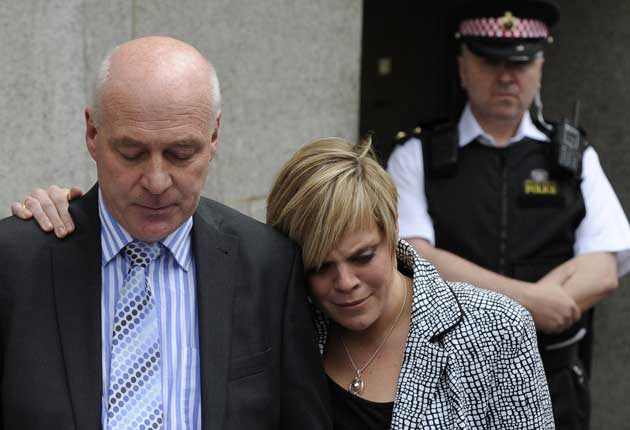Media organisations are swept along by the 24/7 news culture

Mr Justice Wilkie's decision to discharge the Levi Bellfield jury yesterday is the latest in a long-running series of clashes between the judicial system and parts of the media, which are finding it increasingly difficult to recognise the boundaries.
Faced with the increased competition that comes with the 24/7 news culture, media organisations are finding it harder to keep material under their hats, even when the law requires them to do so. The use of Twitter to circumvent privacy super-injunctions has undermined the authority of court orders and encouraged the notion that nothing is off limits.
The result of such a culture was seen yesterday when news organisations were swept along by the excitement of the conviction of Bellfield for Milly Dowler's murder, which had gone unsolved for more than nine years. Straight out on the air went interviews with his former girlfriend Emma Mills and into the newspapers went "backgrounder" articles, even though they dealt with material that had not been before Bellfield's jury. Never mind that the same jury was still deliberating its verdict on the separate charge of abducting Rachel Cowles, 11, the day before Milly was murdered.
The Daily Mail's front page asked whether Bellfield had also been responsible for one of the most famous unsolved crimes of the past 20 years, the double murder of Lin Russell and her daughter Megan, 6, in 1996. After considering the impact on the jury of the coverage, Mr Justice Wilkie said it was "most unfortunate and in some cases deplorable".
The jury could not "be expected to do the impossible," he said. "As a result of the trigger being pulled too soon, on what otherwise would have been proper and appropriate material ... I am obliged to discharge the jury." He then referred the coverage to the Attorney General Dominic Grieve as a possible contempt of court.
The Contempt of Court Act 1981 holds that conduct which interferes with the course of justice may be treated as contempt, whether there was intent, or not. The penalty is up to two years in jail or an unlimited fine.
It is only a few months since Mr Grieve had to warn tabloid newspapers over their coverage of the murder of Jo Yeates, 25, who was found dead on Christmas Day. The Attorney General spoke out after a frenzy of reporting concerning a retired schoolteacher who happened to be Ms Yeates's landlord.
Mr Grieve said: "I would simply ask [the media] to reflect carefully on how they can provide proper coverage on a matter of public importance whilst at the same time, mindful of how our legal system works, they can also ensure that a trial process, if one were ever to happen, will not be prejudiced by material being published which may be irrelevant to any case that comes before the court."
Last month Vincent Tabak, a Dutch engineer and neighbour of Ms Yeates, admitted manslaughter. Soon after, the Attorney General began contempt proceedings against The Sun and the Daily Mirror over its coverage. The case is likely to be heard next month.
Join our commenting forum
Join thought-provoking conversations, follow other Independent readers and see their replies
Comments
Bookmark popover
Removed from bookmarks